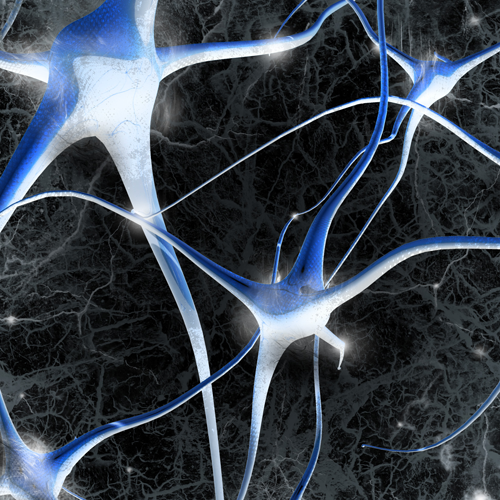Article review: preventing delirium in critically ill patients

Pharmacological and non‑pharmacological interventions to prevent delirium in critically ill patients: a systematic review and network meta‑analysis
Delirium is a frequent condition in the critically ill population, presented as abrupt fluctuations in mental status with inattention, disorganised thinking, and altered level of consciousness not explained by history or current disease. It is related to increased mortality, healthcare costs due to prolonged mechanical ventilation and length of stay, cognitive disorders, and acquired functional demise but is considered preventable and reversible. The pathophysiology is still elusive, but it is considered multifactorial and associated with sedative use.
There are no known treatments for ICU patients presenting with delirium. Several pharmacological (e.g., antipsychotics, dopaminergic and cholinergic pathways moderators) and non-pharmacological (e.g., patient orientation, multicomponent) interventions have been proven inefficient or inconsistent for treating this specific group of patients despite their use in hospitalised, non-ICU populations.
Due to this absence of effective interventions, it is crucial to determine competent prevention strategies. In addition, the ongoing COVID-19 pandemic has increased the frequency of delirium in the ICU and the significance of identifying the optimal pathway for its prevention.
Due to the multitude of possible treatments, the corresponding trials, and the conflicting reports, the authors utilised a network meta-analysis (NMA) which facilitates the synthesis of direct and indirect evidence in a multi-treatment analytical framework. It also allows for evaluating multiple interventions, irrespective of the presence or absence of comparisons in the published data.
The principal goal was to unify the results from interventional trials of delirium in ICU patients. The primary outcome was delirium occurrence.
Secondary were the comparisons of those interventions and their effects on delirium-free and coma-free days, delirium duration and severity, the incidence of sub-syndromal delirium, duration of mechanical ventilation and hospitalisation, mortality, long-term effects (cognitive, discharge disposition, health-related quality of life), and adverse events. Finally, the Preferred Reporting Items for Systematic Reviews and Meta-Analyses (PRISMA) Extension Statement for NMA was used for results reporting.
Eighty trials (published between 2006 and 2021), totalling 17,140 patients, were identified and included. The breakdown of those trials comprised
- 54 (67.5%) pharmacological studies with 14,224 participants
- 25 (31.3%) non-pharmacological single or multicomponent interventions studies with 2904 participants
- 1 study (1.2%) of non-pharmacological and pharmacological combination with 12 participants.
The vast majority (78 trials, 97.5%) used a validated delirium assessment tool; 72 trials (90.0%) used either the Confusion Assessment Method for the ICU (CAM-ICU) or Intensive Care Delirium Screening Checklist (ICDSC), while 43 (53.8%) were conducted in mixed ICUs.
Eleven pharmacological interventions in 38 trials (N = 11,993) were associated with the data network; 24% (13/55) of the pairwise comparisons included direct evidence. Only Alpha2 agonists (all trials used dexmedetomidine, except one) may decrease delirium occurrence (OR 0.43, 95% CrI 0.21–0.85; moderate certainty) compared to placebo. Dexmedetomidine (OR 0.21, 95% CrI 0.08–0.51; low certainty), sedation interruption (OR 0.21, 95% CrI 0.06–0.69; very low certainty), opioid plus benzodiazepine (OR 0.27, 95% CrI 0.10–0.76; very low certainty), and protocolized sedation (OR 0.27, 95% CrI 0.09–0.80; very low certainty) may reduce delirium occurrence, in comparison to benzodiazepines, but the evidence is uncertain.
Dexmedetomidine may reduce the duration of mechanical ventilation compared to benzodiazepines (OR 0.66, 95% CrI 0.44–0.98; low certainty), but no intervention reduced the duration of mechanical ventilation in pairs or compared with placebo.
Nine interventions in 31 studies (N = 10,270) were linked to the evidence network for ICU length of stay; 28% (10/36) of the pairwise comparisons included direct evidence. Only Alpha2 agonists probably reduce ICU length of stay (RoM 0.78, 95% CrI 0.64–0.95; moderate certainty) and hospitalisation duration (RoM 0.65, 95% CrI 0.52–0.83; moderate certainty) in comparison to placebo or antipsychotics (RoM 0.76, 95% CrI 0.61–0.98; low certainty). Opioids (non-short acting RoM 0.47, 95% CrI 0.27–0.80; very low certainty, or short-acting opioids RoM 0.52, 95% CrI 0.32–0.83; very low certainty), sedation interruption (RoM 0.64, 95% CrI 0.41–0.99; very low certainty), protocolised sedation (RoM 0.68, 95% CrI 0.47–0.97; very low certainty) may also have a similar effect.
None of the interventions affected mortality in comparison to placebo or one another. However, inadvertent device removal, reintubation, arrhythmias, tracheostomy, and extrapyramidal effects were recognised as adverse events.
STUDY STRENGTHS & LIMITATIONS
Strengths
- The major strength of this study is the inclusion of a broad spectrum of preventive and therapeutic measures in an NMA. The main difference to other efforts was the commitment to maximise the pool of enrolled patients and increase the results’ applicability.
- There was a liberal approach to enrollment, minimising restrictions related to language, case size, diagnostic and assessment tools, types of interventions, and ICU patient subpopulations.
Limitations
- The main limitation of this study is a byproduct of its major strength. The heterogeneity of the patients, variability of disease severity, levels of respiratory support, treatment modalities (therefore variating risks for delirium manifestation) produced variability in data.
- The derived covariates affecting delirium and response to treatment (age, severity of illness, and treatment for pain, sedation, and agitation) were unadjusted for effect modifiers, with uncharted implications on the results.
- Results were reserved to linear pairwise correlations only for non-pharmacological strategies. However, no significance was found, per the present literature.
- In the outcomes, delirium severity, time to delirium improvement, quality of life, and emotional distress were not reported, even though they are considered noteworthy.
TAKE-HOME MESSAGES
Compared to placebo or benzodiazepines, Dexmedetomidine probably prevents delirium; a sedation-minimisation protocol may prevent delirium, while antipsychotics may not.
Dexmedetomidine probably reduces ICU and hospital stay length, compared to placebo and antipsychotics (but with less certainty regarding antipsychotics).
This article review was prepared and submitted by Dimitrios Papadopoulos MD, MSc, PhD, Senior Consultant in Intensive Care Medicine, General Hospital of Larisa, Larisa, Greece, on behalf of the ESICM Journal Review Club.
REFERENCES
Burry L.D. et al. Pharmacological and non-pharmacological interventions to prevent delirium in critically ill patients: a systematic review and network meta-analysis. Intensive Care Med. 2021 Sep;47(9):943-960. doi: 10.1007/s00134-021-06490-3. Epub 2021 Aug 11. PMID: 34379152; PMCID: PMC8356549.